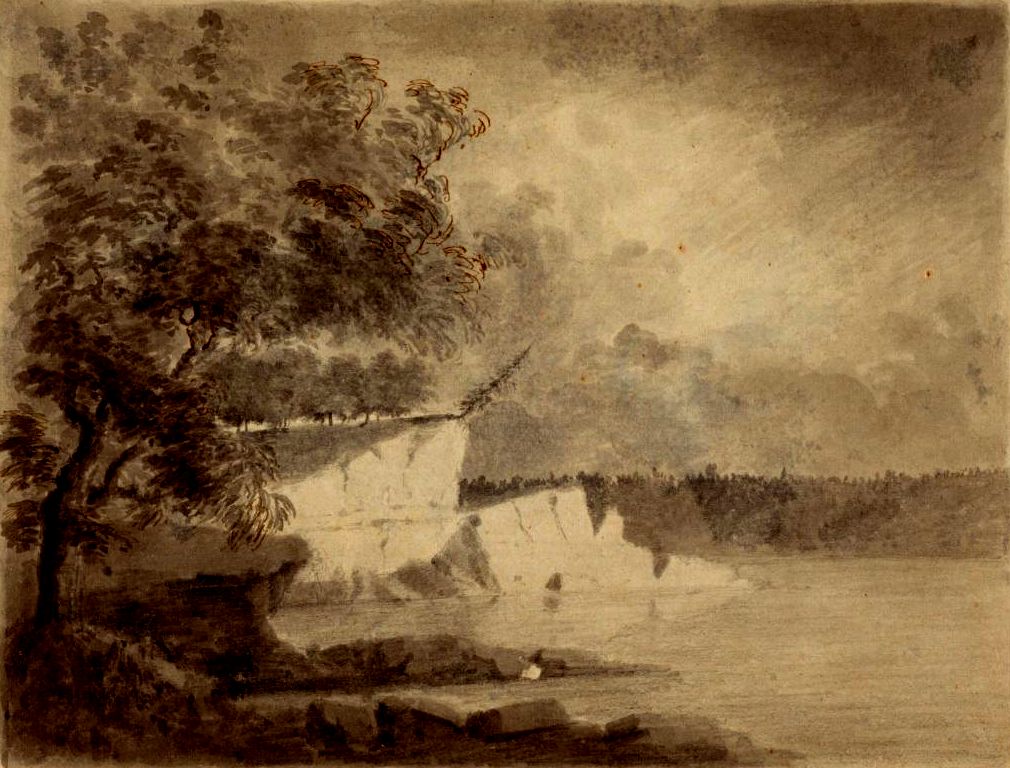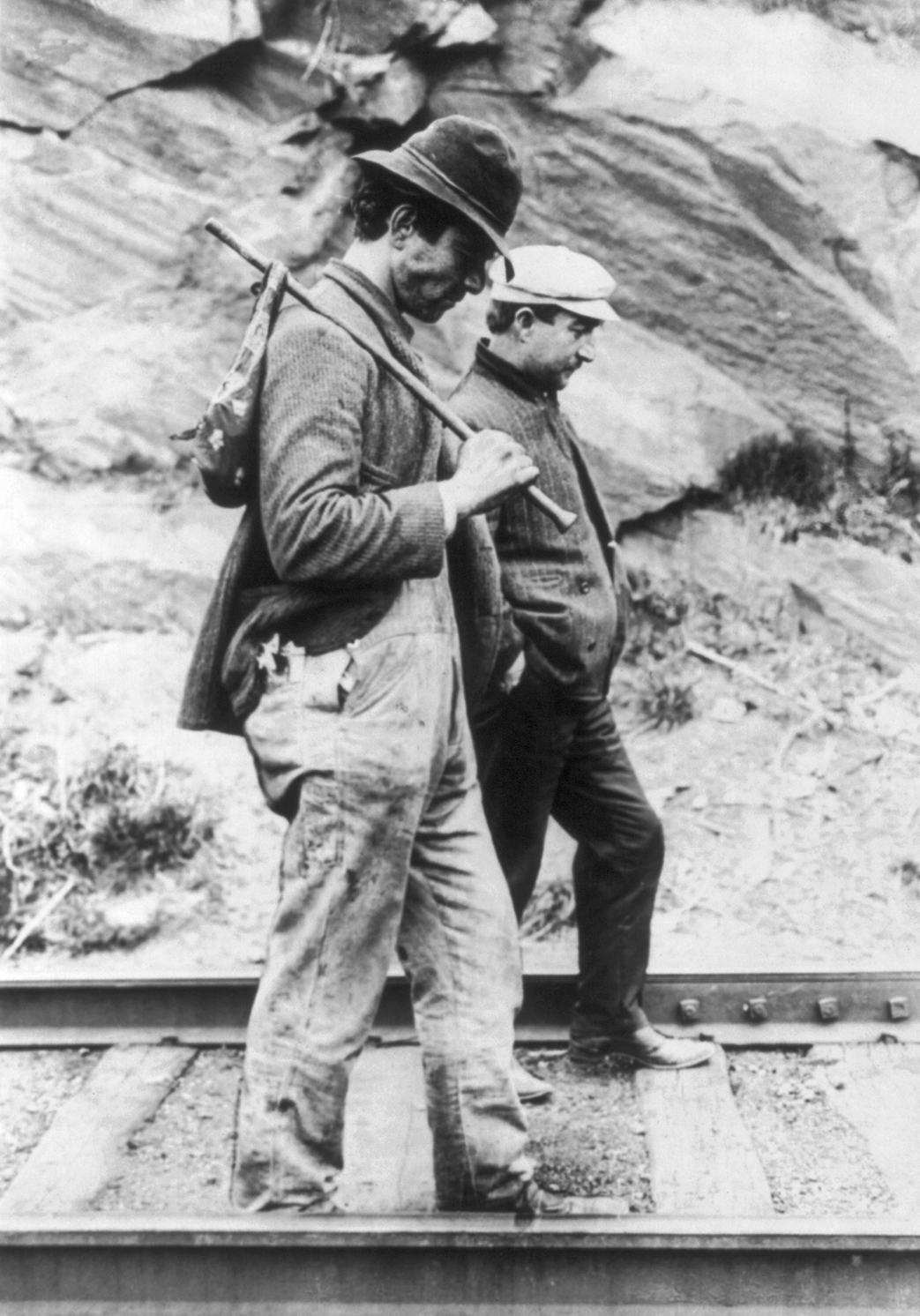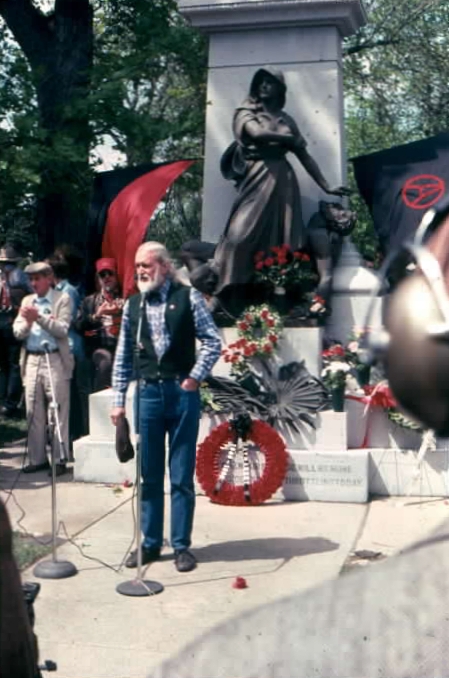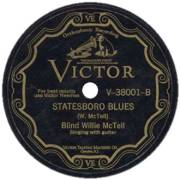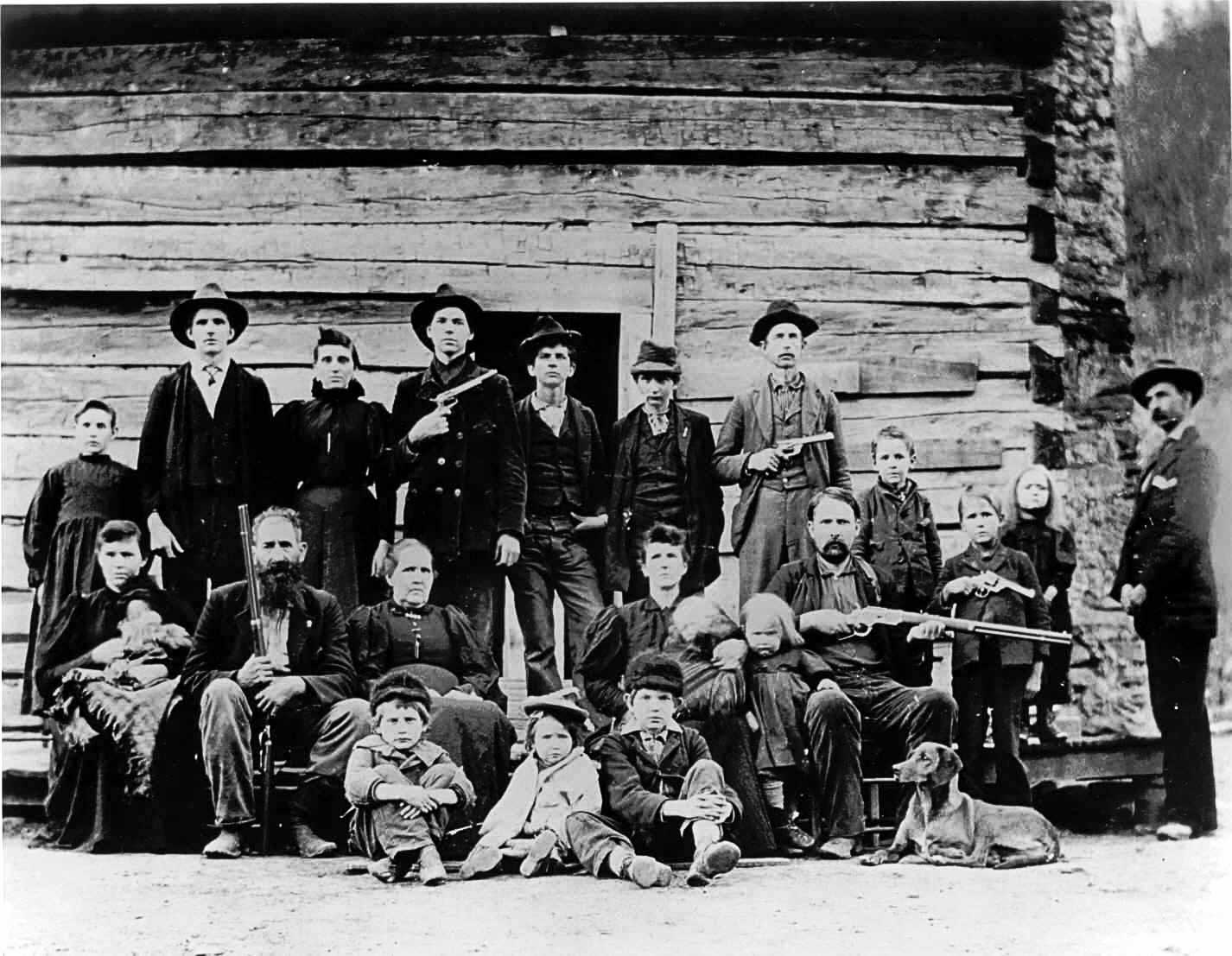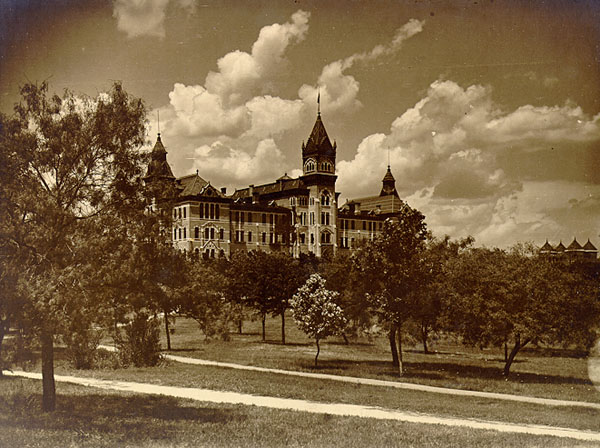|
Wabash Cannonball
"The Great Rock Island Route", popularized as "Wabash Cannonball" and various other titles, is a 19th century American folk song that describes the scenic beauty and predicaments of a fictional train, the ''Wabash Cannonball Express'', as it traveled on the Great Rock Island Railroad. The song has become a country music staple and common marching band repertoire. The only train to actually bear the name was created in response to the song's popularity, with the Wabash Railroad renaming its daytime express service between Detroit and St. Louis as the Wabash Cannon Ball from 1949 until discontinuation during the formation of Amtrak in 1971. The Carter Family made one of the first recordings of the song in 1929, though it was not released until 1932. Another popular version was recorded by Roy Acuff in 1936. The Acuff version is one of the fewer than 40 all-time singles to have sold 10 million (or more) physical copies worldwide. It is a signature song of the Indiana State Uni ... [...More Info...] [...Related Items...] OR: [Wikipedia] [Google] [Baidu] |
American Folk Music
The term American folk music encompasses numerous music genres, variously known as ''traditional music'', ''traditional folk music'', ''contemporary folk music'', ''vernacular music,'' or ''roots music''. Many traditional songs have been sung within the same family or folk group for generations, and sometimes trace back to such origins as the British Isles, Mainland Europe, or Africa. Musician Mike Seeger once famously commented that the definition of American folk music is "...all the music that fits between the cracks." American folk music is a broad category of music including bluegrass, gospel, old time music, jug bands, Appalachian folk, blues, Cajun and Native American music. The music is considered American either because it is native to the United States or because it developed there, out of foreign origins, to such a degree that it struck musicologists as something distinctly new. It is considered "roots music" because it served as the basis of music later develope ... [...More Info...] [...Related Items...] OR: [Wikipedia] [Google] [Baidu] |
Wabash River
The Wabash River ( French: Ouabache) is a U.S. Geological Survey. National Hydrography Dataset high-resolution flowline dataThe National Map accessed May 13, 2011 river that drains most of the state of Indiana in the United States. It flows from the headwaters in Ohio, near the Indiana border, then southwest across northern Indiana turning south near the Illinois border, where the southern portion forms the Indiana-Illinois border before flowing into the Ohio River. It is the largest northern tributary of the Ohio River and third largest overall, behind the Cumberland and Tennessee rivers. From the dam near Huntington, Indiana, to its terminus at the Ohio River, the Wabash flows freely for . Its watershed drains most of Indiana. The Tippecanoe River, White River, Embarras River and Little Wabash River are major tributaries. The river's name comes from a Miami word meaning "water over white stones", as its bottom is white limestone, now obscured by mud. The Wabash is the st ... [...More Info...] [...Related Items...] OR: [Wikipedia] [Google] [Baidu] |
Hobos
A hobo is a migrant worker in the United States. Hoboes, tramps and bums are generally regarded as related, but distinct: a hobo travels and is willing to work; a tramp travels, but avoids work if possible; and a bum neither travels nor works. Etymology The origin of the term is unknown. According to etymologist Anatoly Liberman, the only certain detail about its origin is the word was first noticed in American English circa 1890. The term has also been dated to 1889 in the Western—probably Northwestern—United States, and to 1888. Liberman points out that many folk etymologies fail to answer the question: "Why did the word become widely known in California (just there) by the early Nineties (just then)?" Author Todd DePastino notes that some have said that it derives from the term "hoe-boy", coming from the hoe they are using and meaning "farmhand", or a greeting such as "Ho, boy", but that he does not find these to be convincing explanations. Bill Bryson suggests in '' Mad ... [...More Info...] [...Related Items...] OR: [Wikipedia] [Google] [Baidu] |
Utah Phillips
Bruce Duncan "Utah" Phillips (May 15, 1935 – May 23, 2008) , KVMR, Nevada City, California, May 24, 2008. Retrieved 24 May 2008. was an American labor organizer, , storyteller and poet. He described the struggles of labor unions and the power of , self-identifying as an . He often promoted the |
Bing Crosby
Harry Lillis "Bing" Crosby Jr. (May 3, 1903 – October 14, 1977) was an American singer, musician and actor. The first multimedia star, he was one of the most popular and influential musical artists of the 20th century worldwide. He was a leader in record sales, radio ratings, and motion picture grosses from 1926 to 1977. He made over 70 feature films and recorded more than 1,600 songs. His early career coincided with recording innovations that allowed him to develop an intimate singing style that influenced many male singers who followed, such as Frank Sinatra, Perry Como, Dean Martin, Dick Haymes, Elvis Presley, and John Lennon. ''Yank'' magazine said that he was "the person who had done the most for the morale of overseas servicemen" during World War II. In 1948, American polls declared him the "most admired man alive", ahead of Jackie Robinson and Pope Pius XII. In 1948, ''Music Digest'' estimated that his recordings filled more than half of the 80,000 weekly hou ... [...More Info...] [...Related Items...] OR: [Wikipedia] [Google] [Baidu] |
Blind Willie McTell
Blind Willie McTell (born William Samuel McTier; May 5, 1898 – August 19, 1959) was a Piedmont blues and ragtime singer and guitarist. He played with a fluid, syncopated fingerstyle guitar technique, common among many exponents of Piedmont blues. Unlike his contemporaries, he came to use twelve-string guitars exclusively. McTell was also an adept slide guitarist, unusual among ragtime bluesmen. His vocal style, a smooth and often laid-back tenor, differed greatly from many of the harsher voices of Delta bluesmen such as Charley Patton. McTell performed in various musical styles, including blues, ragtime, religious music and hokum. McTell was born in Thomson, Georgia. He learned to play the guitar in his early teens. He soon became a street performer in several Georgia cities, including Atlanta and Augusta, and first recorded in 1927 for Victor Records. He never produced a major hit record, but he had a prolific recording career with different labels and under different names ... [...More Info...] [...Related Items...] OR: [Wikipedia] [Google] [Baidu] |
Great Depression
The Great Depression (19291939) was an economic shock that impacted most countries across the world. It was a period of economic depression that became evident after a major fall in stock prices in the United States. The economic contagion began around September and led to the Wall Street stock market crash of October 24 (Black Thursday). It was the longest, deepest, and most widespread depression of the 20th century. Between 1929 and 1932, worldwide gross domestic product (GDP) fell by an estimated 15%. By comparison, worldwide GDP fell by less than 1% from 2008 to 2009 during the Great Recession. Some economies started to recover by the mid-1930s. However, in many countries, the negative effects of the Great Depression lasted until the beginning of World War II. Devastating effects were seen in both rich and poor countries with falling personal income, prices, tax revenues, and profits. International trade fell by more than 50%, unemployment in the U.S. rose to 23% and ... [...More Info...] [...Related Items...] OR: [Wikipedia] [Google] [Baidu] |
Hillbilly
Hillbilly is a term (often derogatory) for people who dwell in rural, mountainous areas in the United States, primarily in southern Appalachia and the Ozarks. The term was later used to refer to people from other rural and mountainous areas west of the Mississippi river, too, particularly those of the Rocky Mountains and near the Rio Grande. The first known instances of "hillbilly" in print were in ''The Railroad Trainmen's Journal'' (vol. ix, July 1892), an 1899 photograph of men and women in West Virginia labeled "Camp Hillbilly", and a 1900 ''New York Journal'' article containing the definition: "a Hill-Billie is a free and untrammeled white citizen of Alabama, who lives in the hills, has no means to speak of, dresses as he can, talks as he pleases, drinks whiskey when he gets it, and fires off his revolver as the fancy takes him". The stereotype is twofold in that it incorporates both positive and negative traits: "Hillbillies" are often considered independent and self-relian ... [...More Info...] [...Related Items...] OR: [Wikipedia] [Google] [Baidu] |
The Carter Family
Carter Family was a traditional American folk music group that recorded between 1927 and 1956. Their music had a profound impact on bluegrass, country, Southern Gospel, pop and rock musicians as well as on the U.S. folk revival of the 1960s. They were the first vocal group to become country music stars, and were among the first groups to record commercially produced country music. Their first recordings were made in Bristol, Tennessee, for the Victor Talking Machine Company under producer Ralph Peer on August 1, 1927, the day before country singer Jimmie Rodgers also made his initial recordings for Victor under Peer. Their recordings of songs such as "Wabash Cannonball", " Can the Circle Be Unbroken", "Wildwood Flower", " Keep On the Sunny Side" and "I'm Thinking Tonight of My Blue Eyes" made these songs country standards. The tune of the last was used for Roy Acuff's " The Great Speckled Bird", Hank Thompson's "The Wild Side of Life" and Kitty Wells' "It Wasn't God Who Made ... [...More Info...] [...Related Items...] OR: [Wikipedia] [Google] [Baidu] |
Longhorn Band
The University of Texas Longhorn Band (LHB), also known as the Showband of the Southwest, is the marching band of The University of Texas at Austin. The Longhorn Band was founded in 1900 by distinguished professor of chemistry, Dr. Eugene P. Schoch. The band is currently under the direction of Dr. Cliff Croomes. The band performs at all in-state football games, for various Texas Longhorn Athletics teams, and at special pep rallies and parades throughout the year. The band includes about 375 students, all of whom must register for a year-round course offered by thButler School of Music The Longhorn Band has received prestigious honors, such as the Sudler Trophy, in 1986 and performed at many notable occasions, including Super Bowl VIII and the inaugural parades of five presidents: John F. Kennedy, Lyndon B. Johnson, Ronald Reagan, George H. W. Bush, and George W. Bush. History Founding and early years (1900–1955) The Longhorn Band was founded in 1900 by distinguished profe ... [...More Info...] [...Related Items...] OR: [Wikipedia] [Google] [Baidu] |
University Of Texas
The University of Texas at Austin (UT Austin, UT, or Texas) is a public research university in Austin, Texas. It was founded in 1883 and is the oldest institution in the University of Texas System. With 40,916 undergraduate students, 11,075 graduate students and 3,133 teaching faculty as of Fall 2021, it is also the largest institution in the system. It is ranked among the top universities in the world by major college and university rankings, and admission to its programs is considered highly selective. UT Austin is considered one of the United States's Public Ivies. The university is a major center for academic research, with research expenditures totaling $679.8 million for fiscal year 2018. It joined the Association of American Universities in 1929. The university houses seven museums and seventeen libraries, including the LBJ Presidential Library and the Blanton Museum of Art, and operates various auxiliary research facilities, such as the J. J. Pickle Research Ca ... [...More Info...] [...Related Items...] OR: [Wikipedia] [Google] [Baidu] |
Goin' Band From Raiderland
The Goin' Band from Raiderland is the 375-member marching band of Texas Tech University. History The Goin' Band from Raiderland, originally known as The Matador Band, is nearly as old as Texas Tech itself. Under the direction of W. Waghorne, it performed at the opening College football, football game in October 1925 in sports, 1925, fielding between 21 and 25 members. In 1926, Harry Lemaire (1862–1963) was appointed director of the marching band. Following his service in the British Army, Lemaire had been bandmaster under Theodore Roosevelt during the Spanish–American War and was a friend and colleague of John Philip Sousa. Under his leadership, the band earned its name when it became the first college band to travel to an away game. Also during Lemaire's tenure, the band became the first one to have its halftime show broadcast over the radio. American humorist Will Rogers once aided in financing a trip to Fort Worth, Texas, so the band could perform at a game against the T ... [...More Info...] [...Related Items...] OR: [Wikipedia] [Google] [Baidu] |

